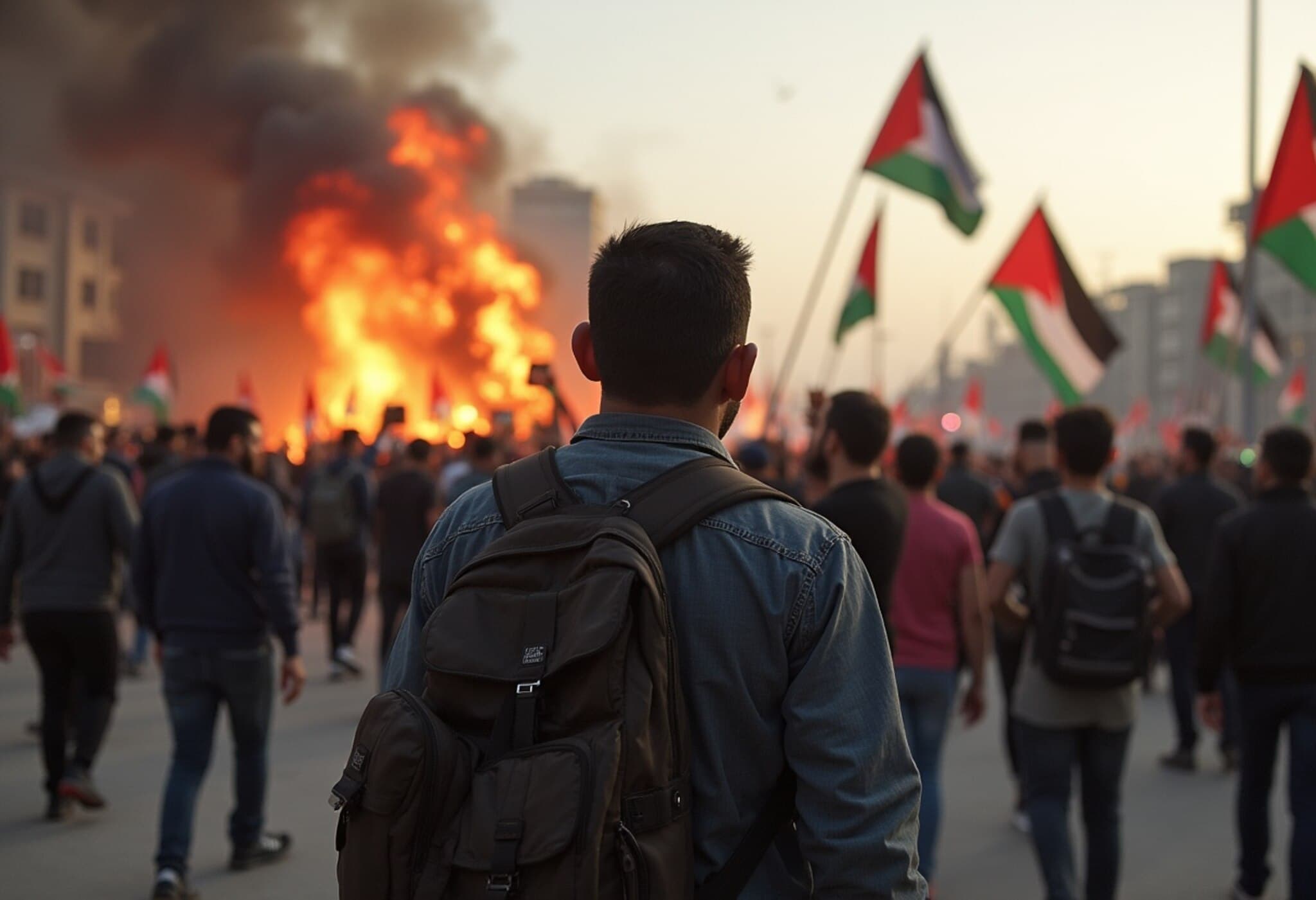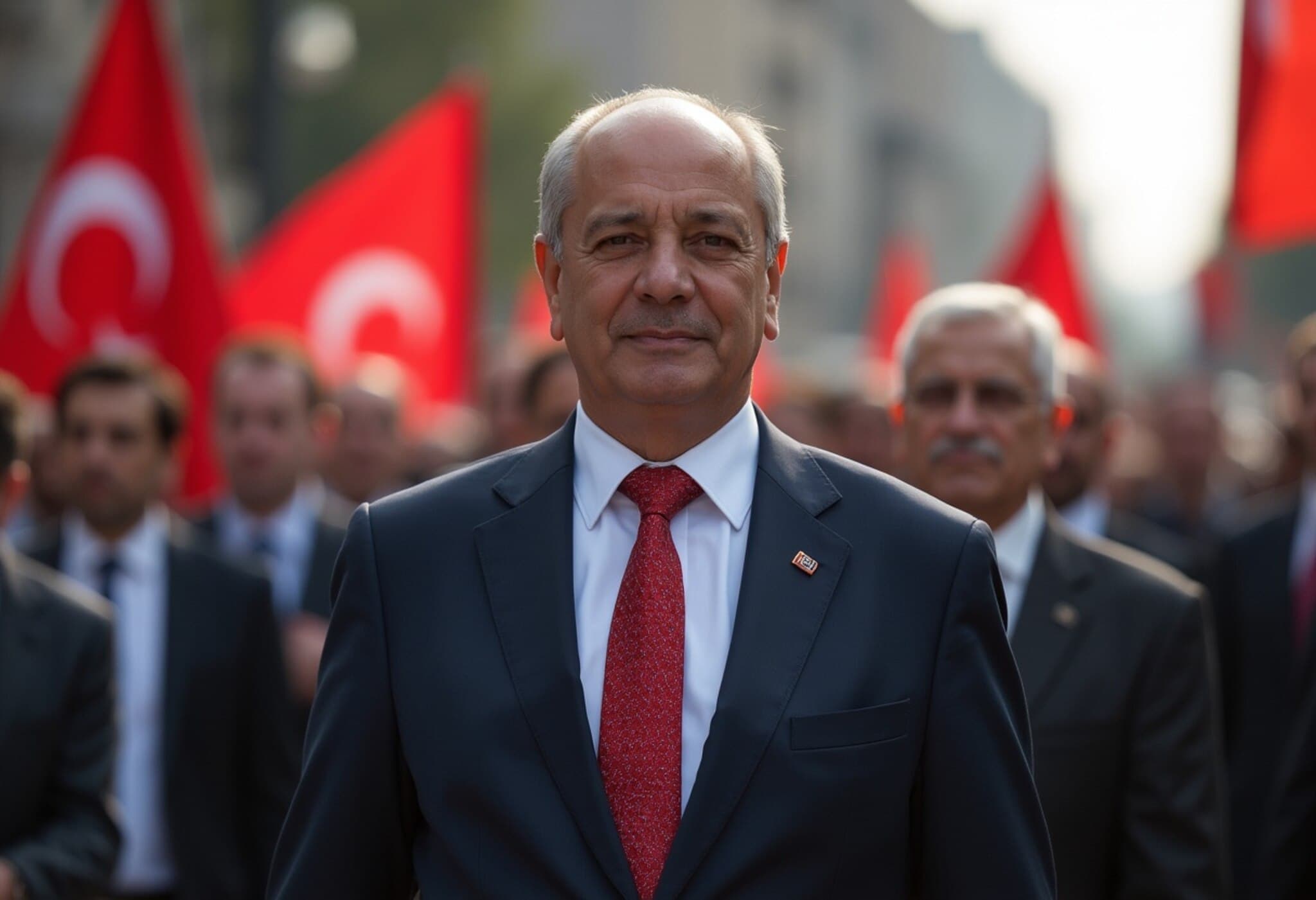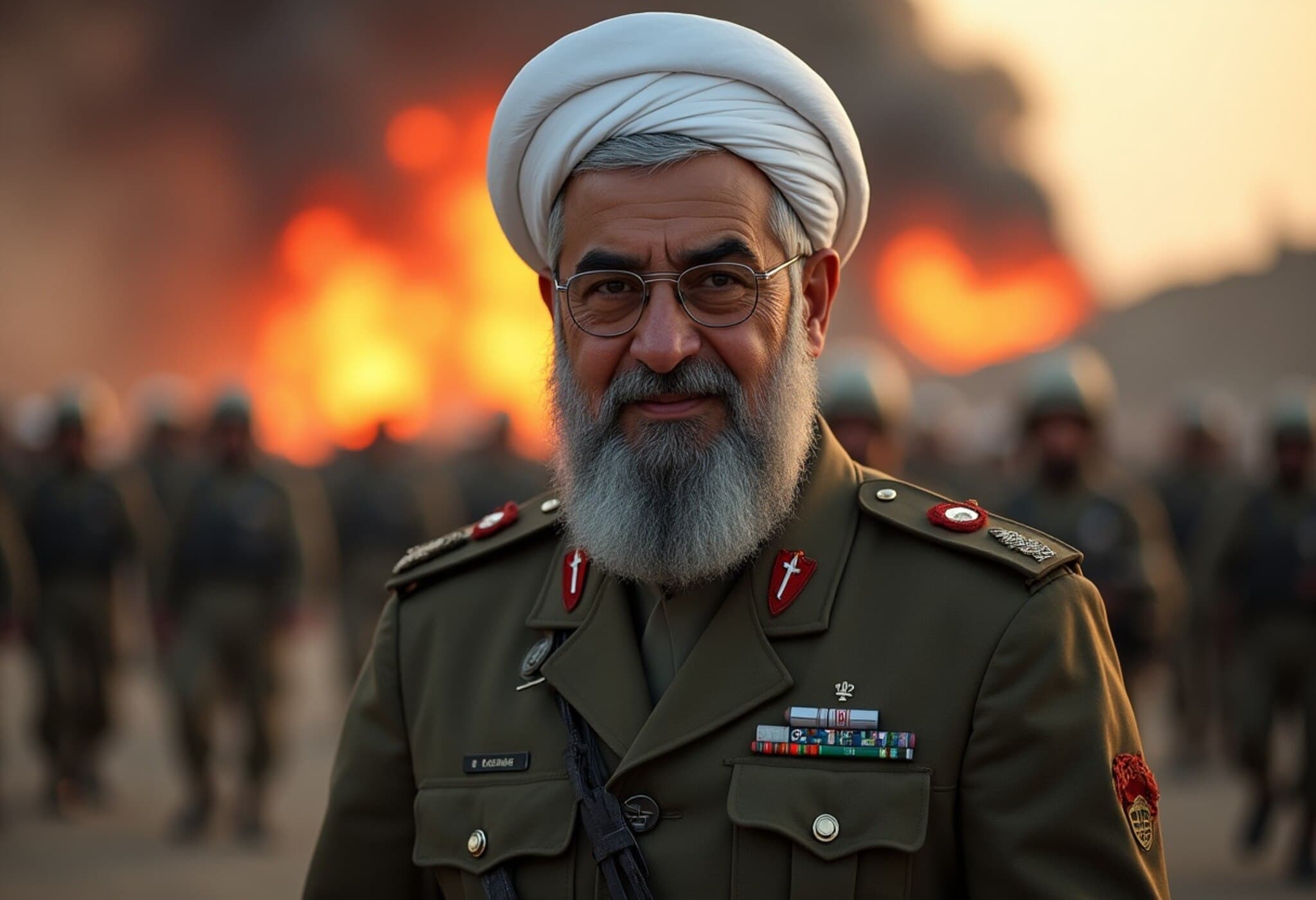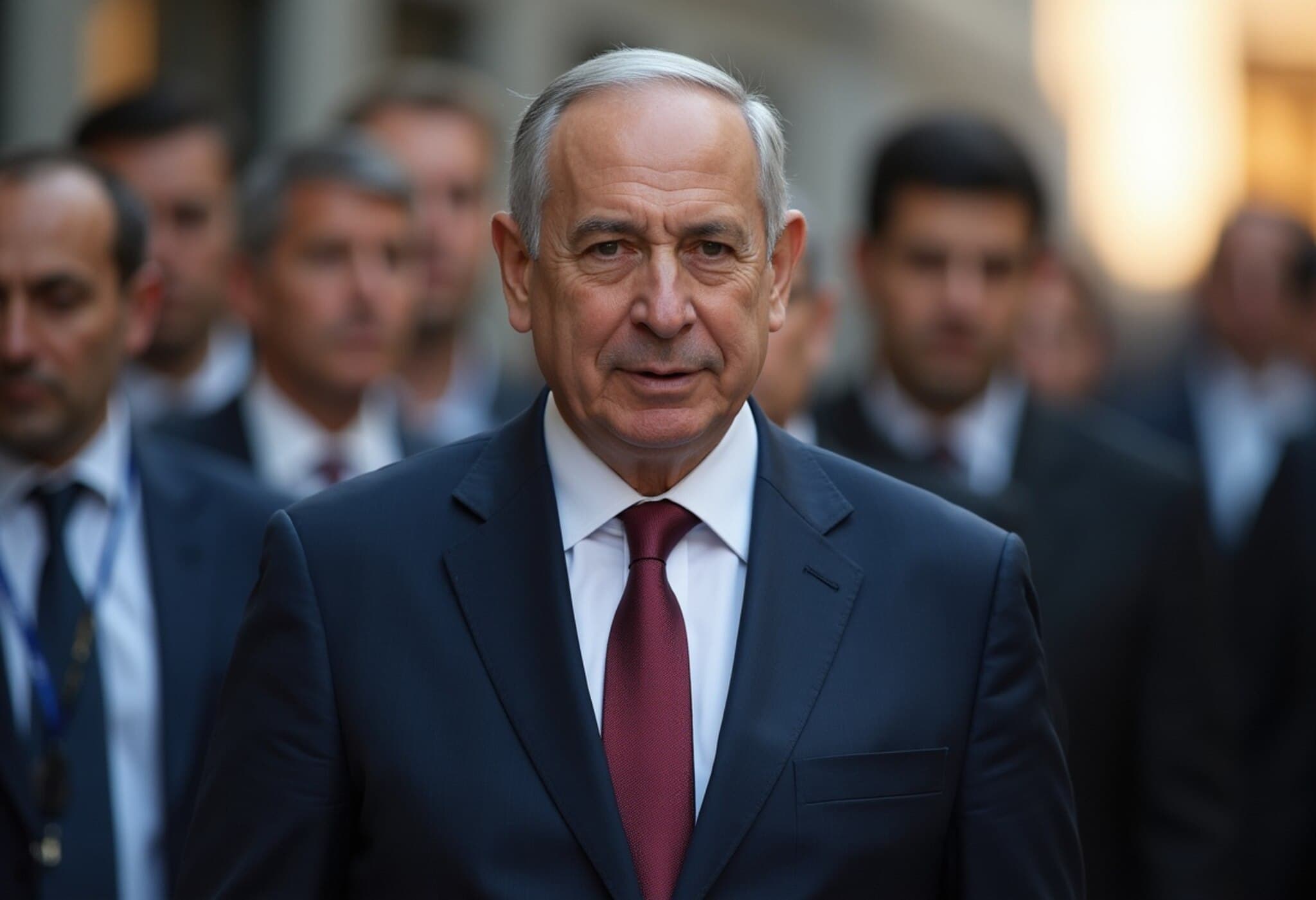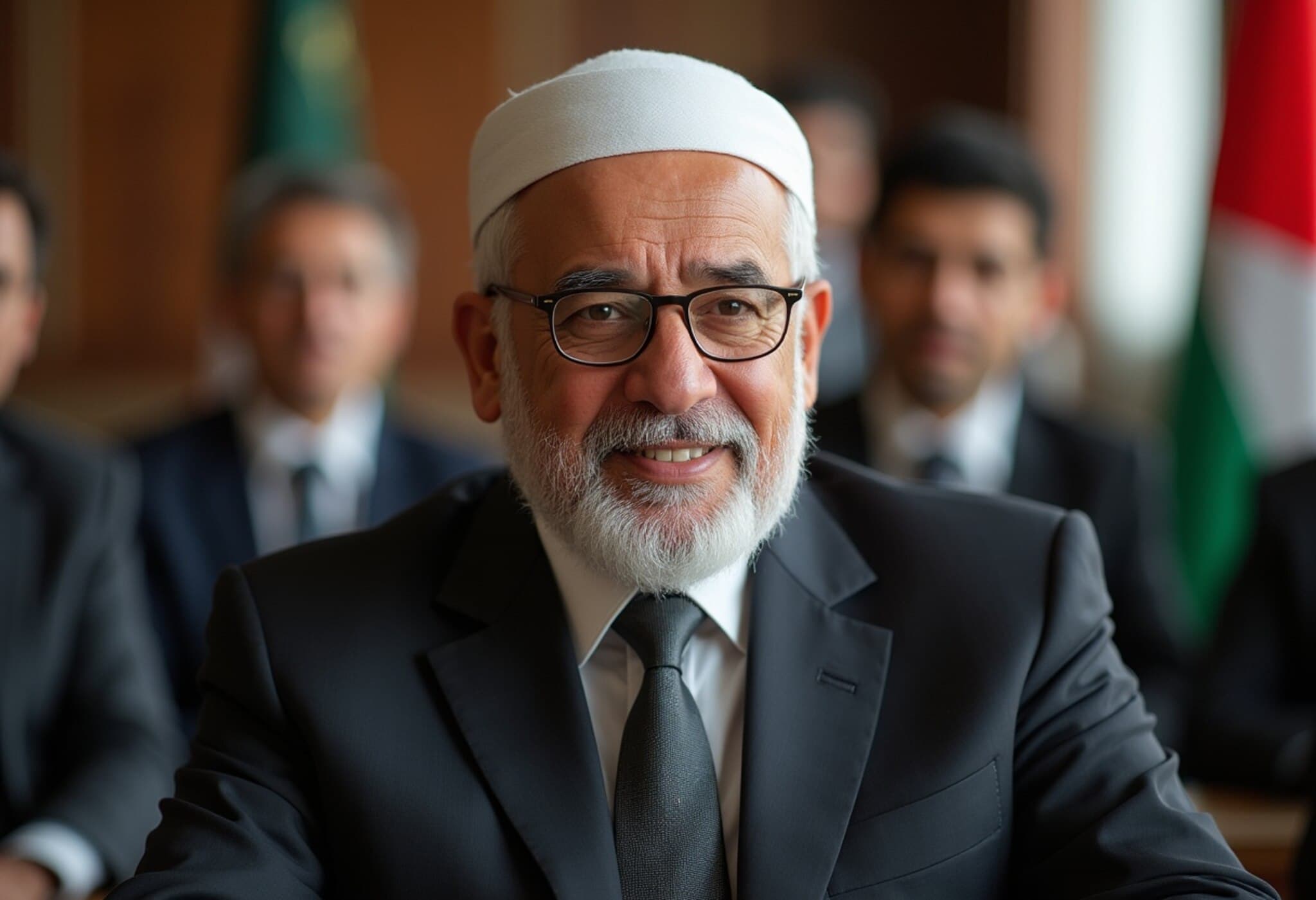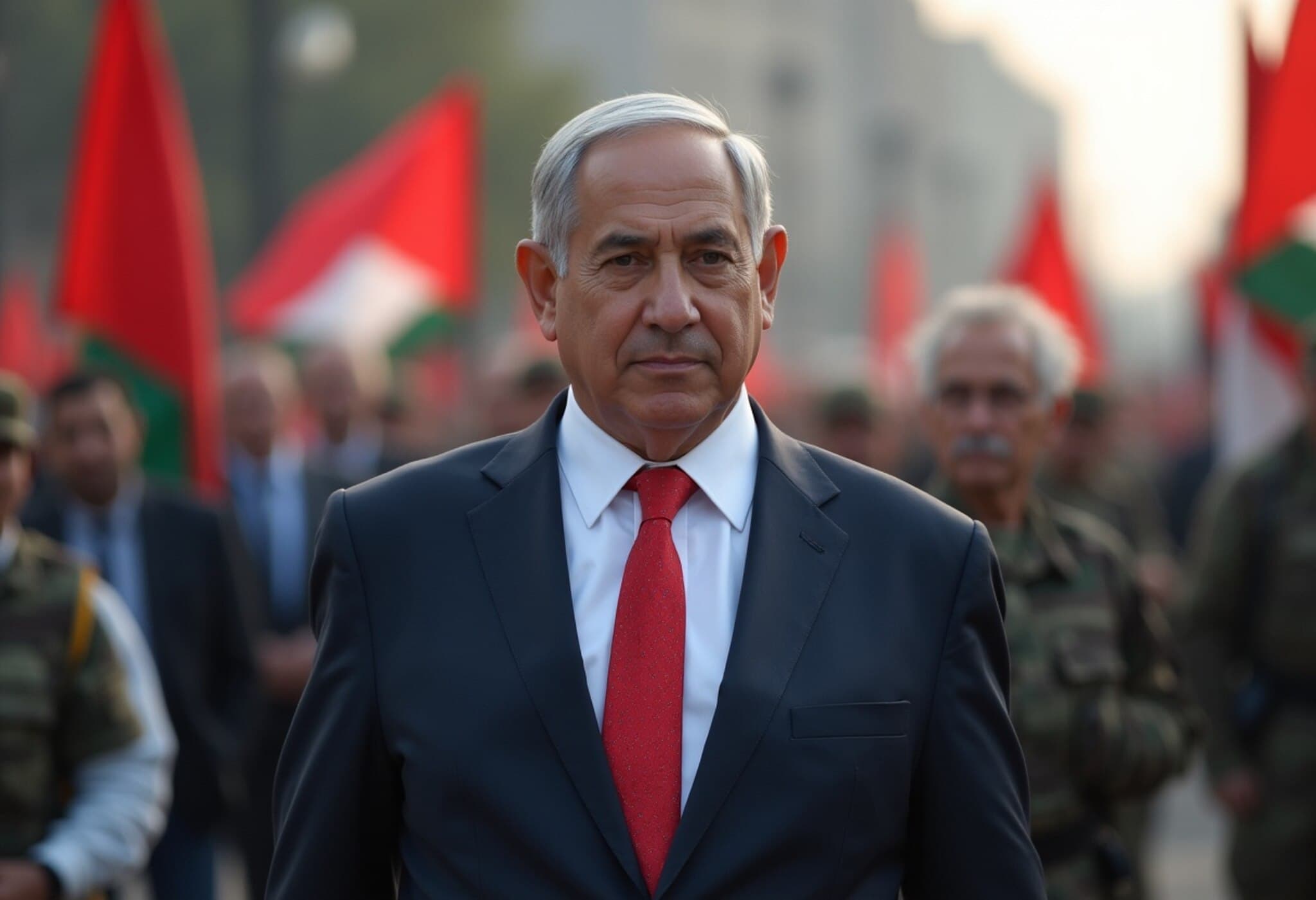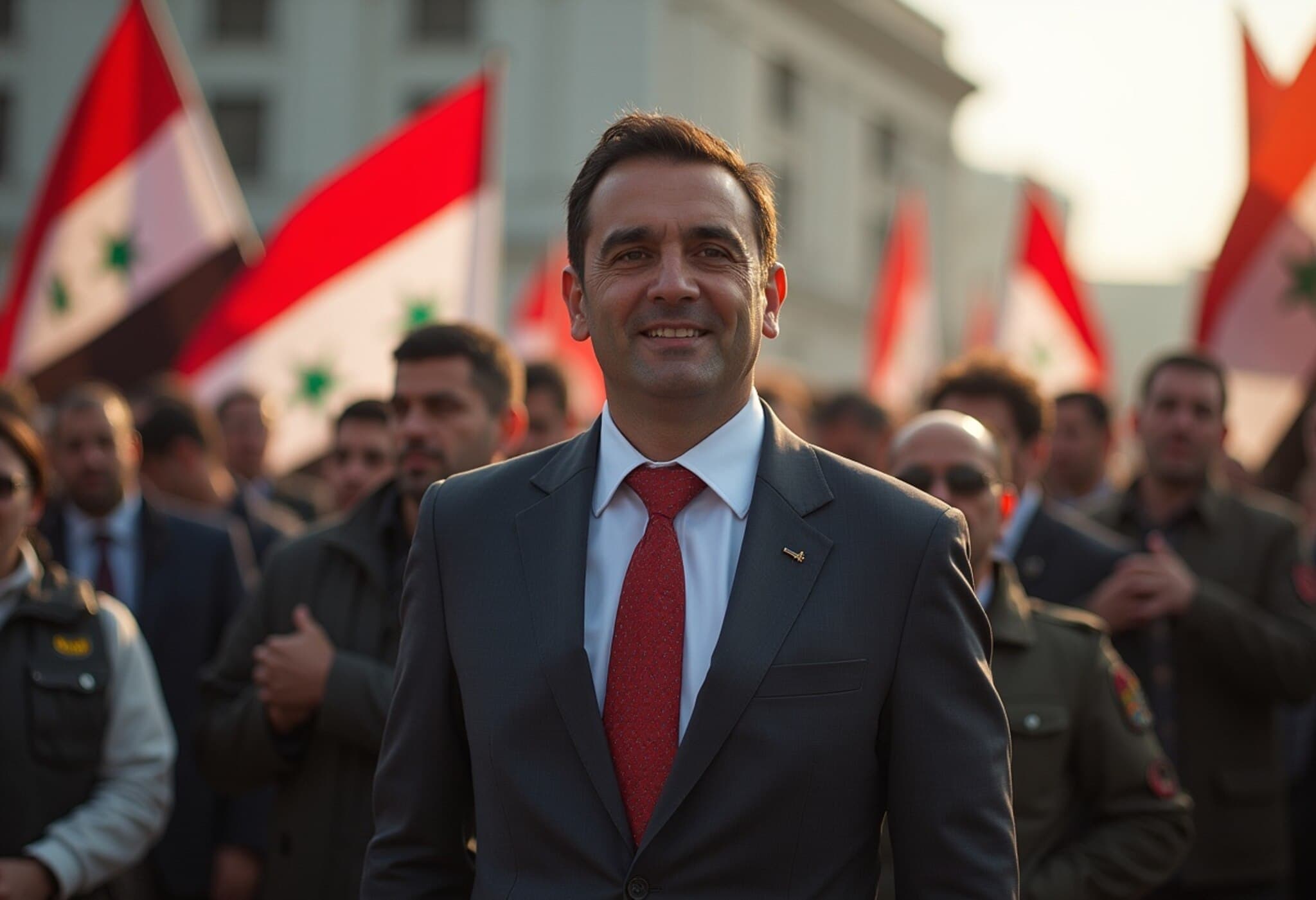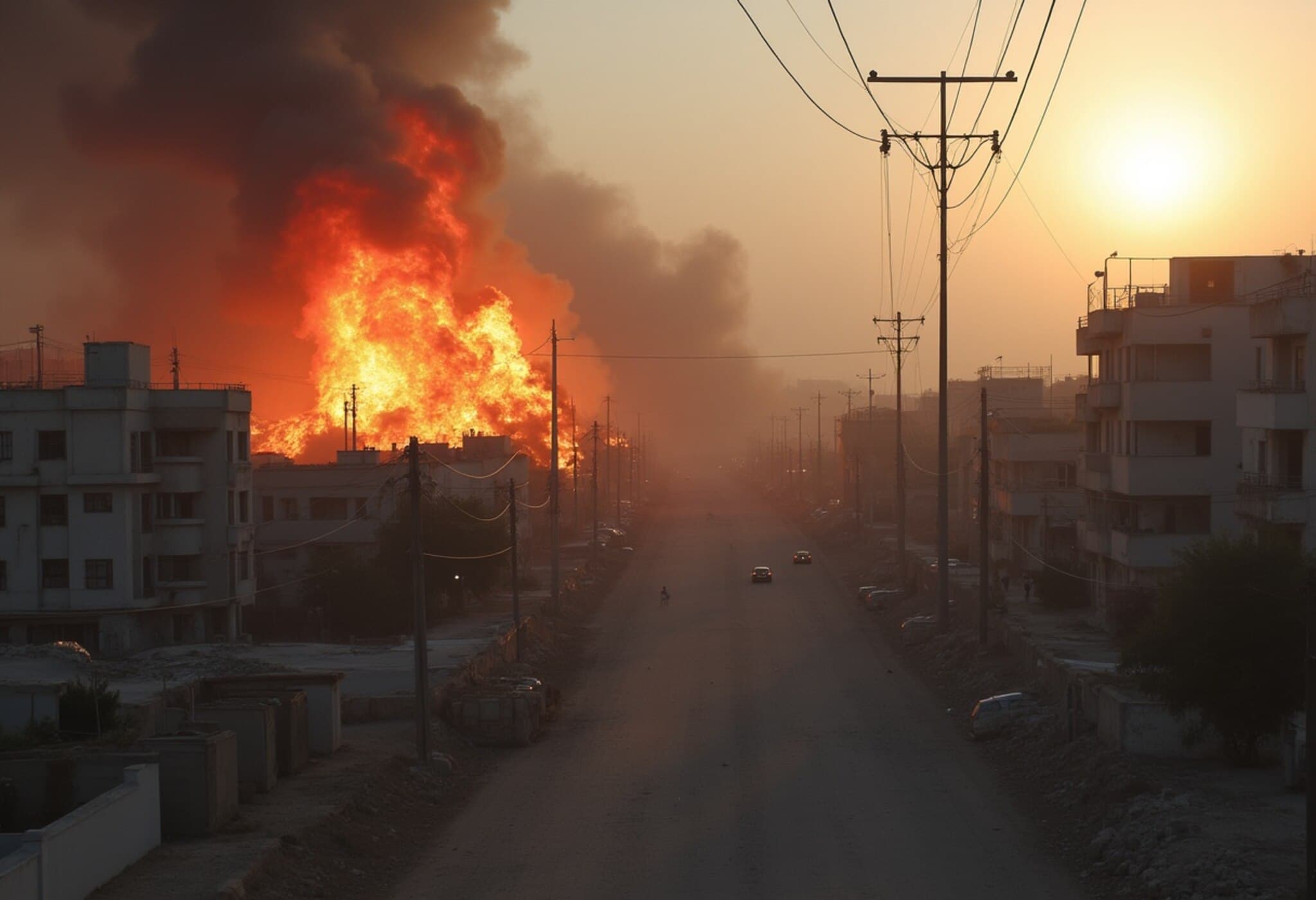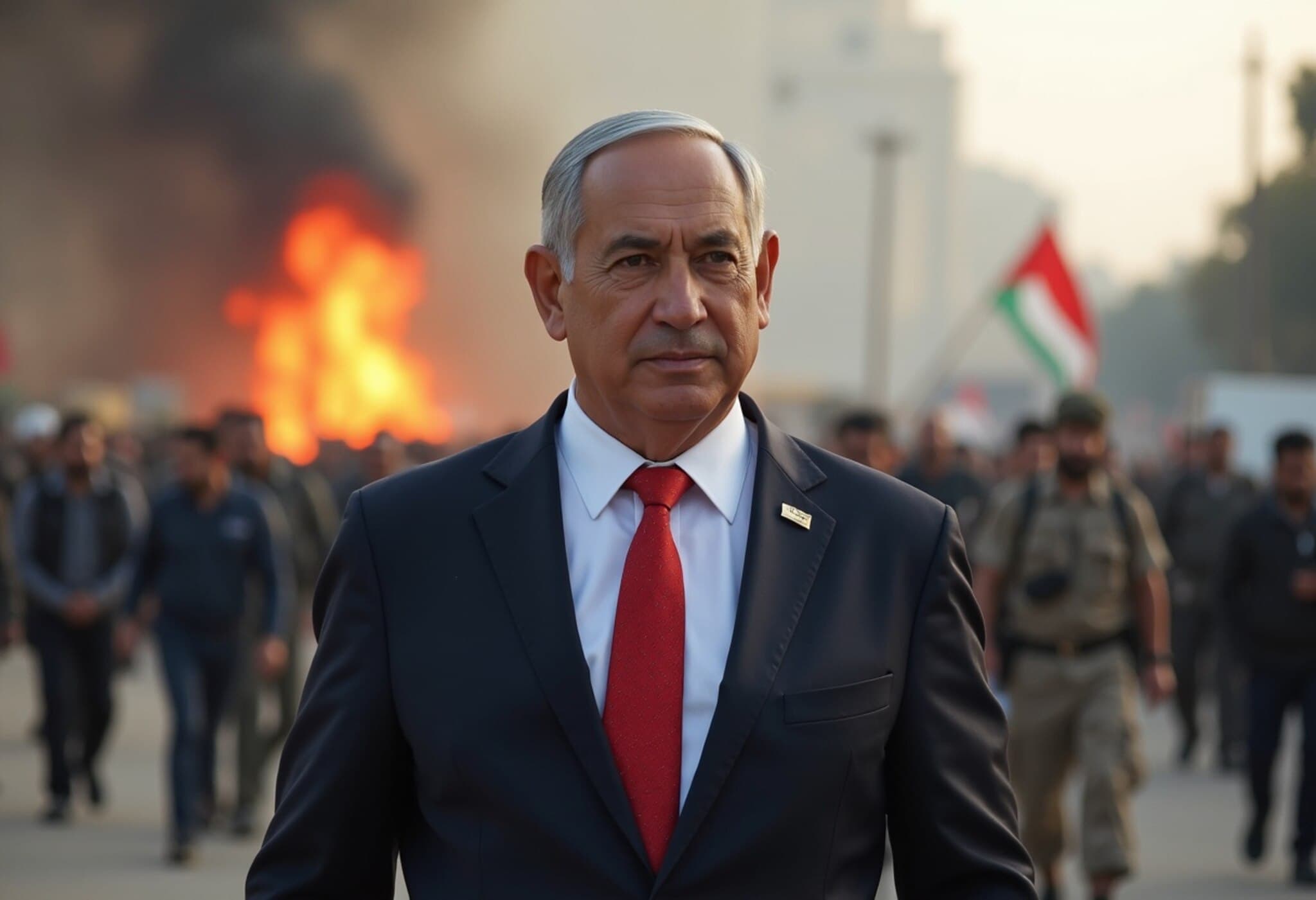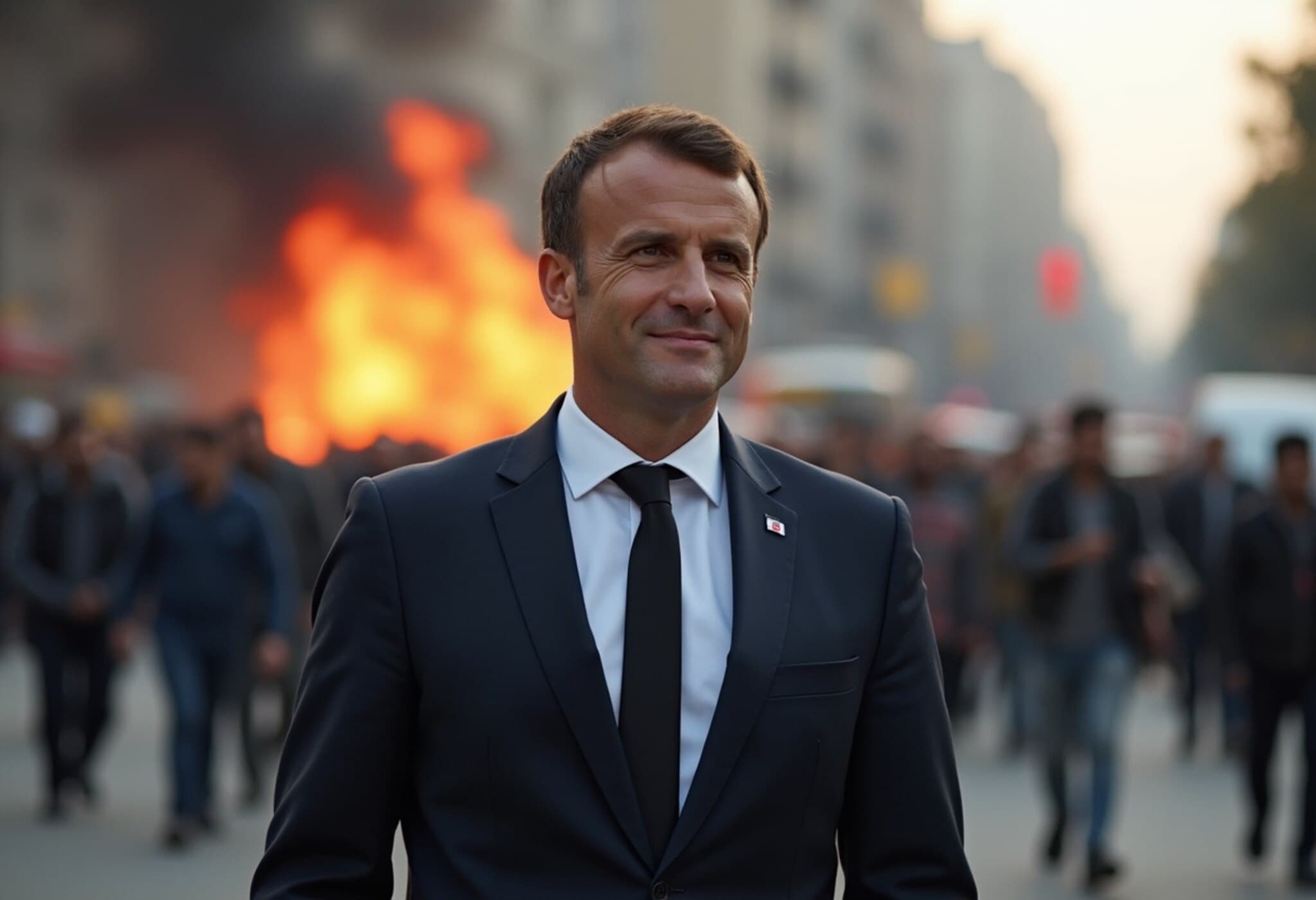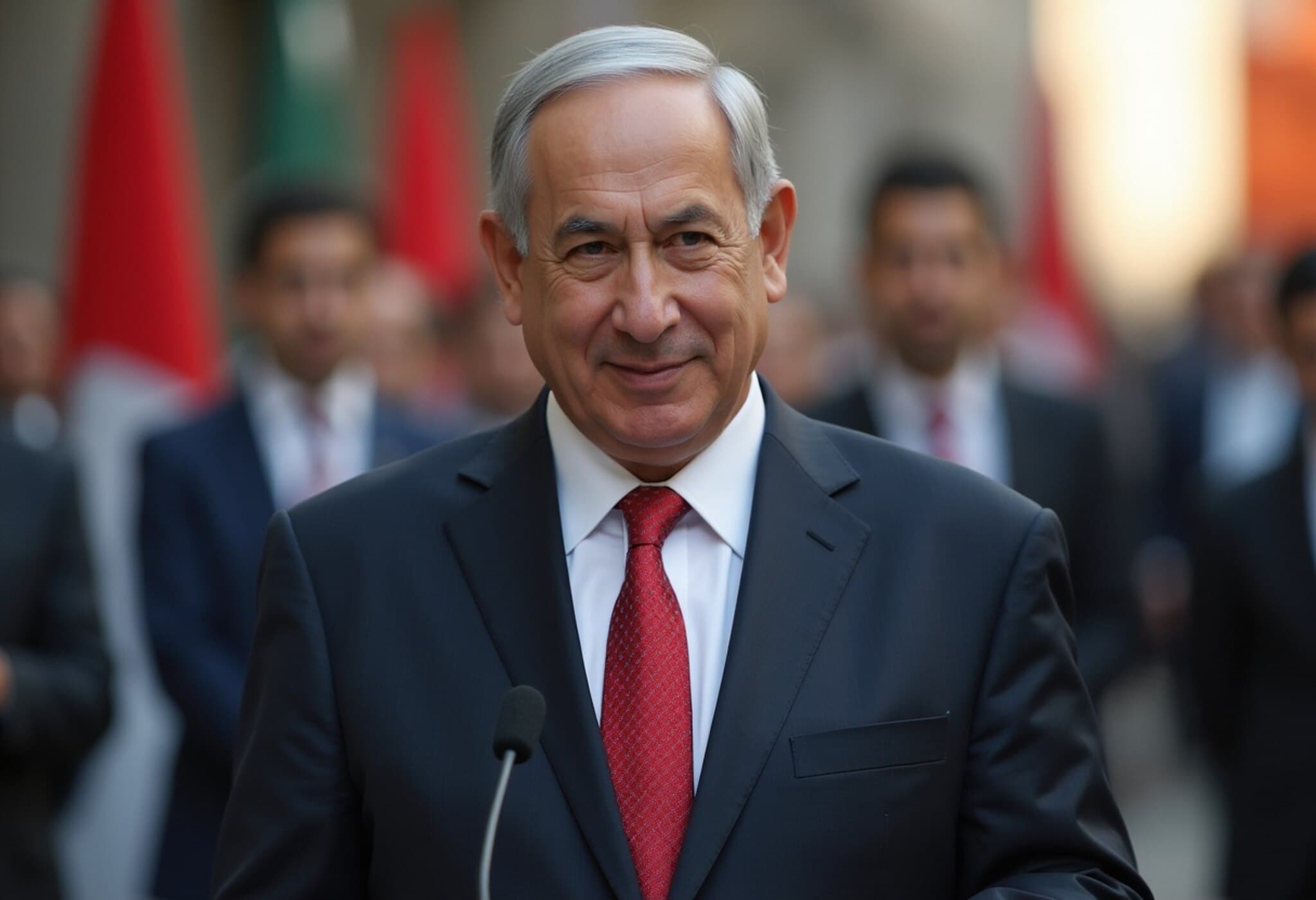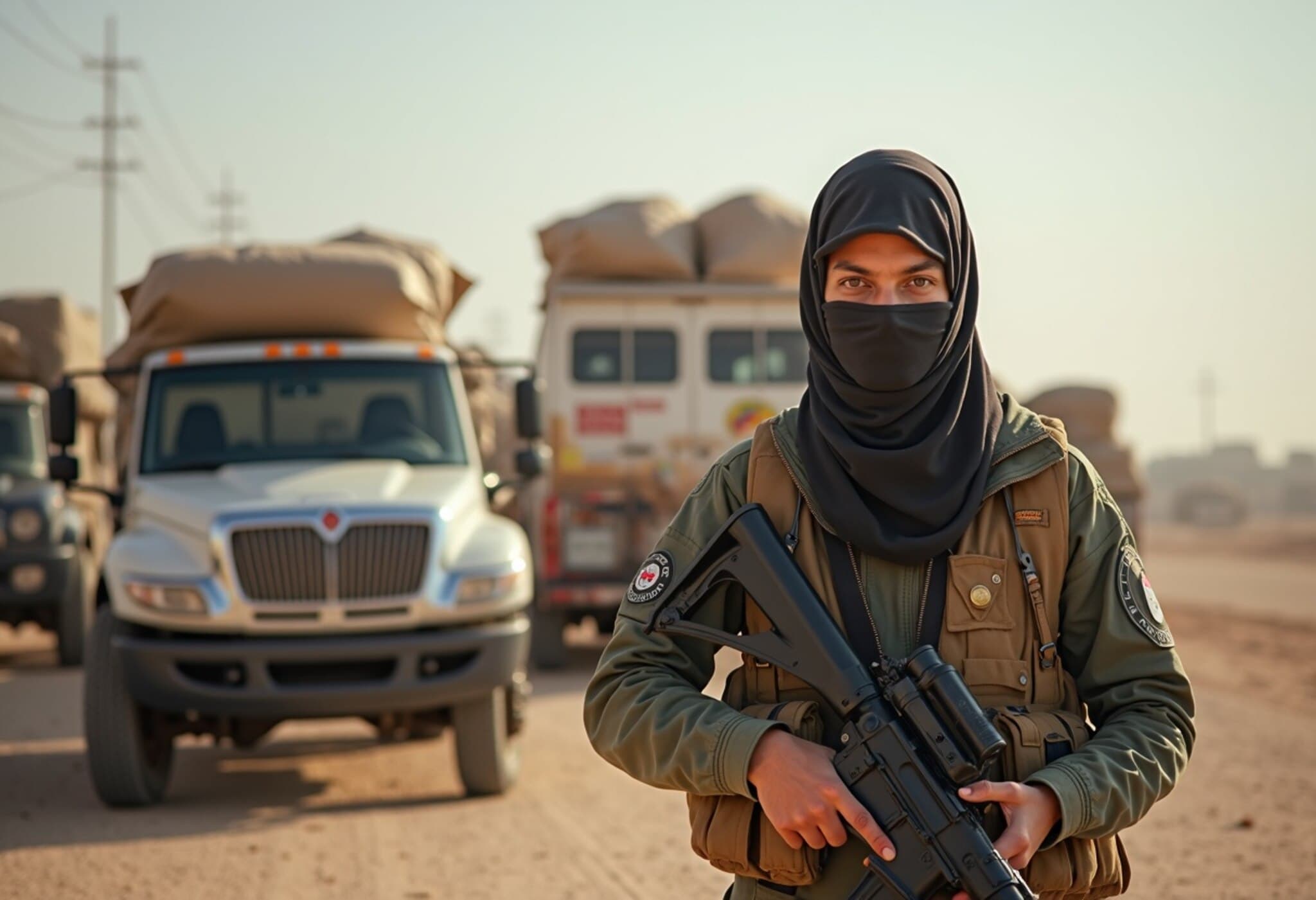Gaza City Braces for Escalating Conflict Amid Israeli Military Plans
As tensions tighten in the Gaza Strip, residents of Gaza City are caught between fear and defiance amid Israel's announcement to intensify its military operations in the densely populated coastal enclave. With the specter of a large-scale offensive looming, many Palestinians are hastily packing essentials and seeking refuge in camps, fearful of imminent displacement and violence.
A City on Edge: Protest and Persistence
Despite mounting danger, a small but resolute group of Palestinians gathered among the rubble of damaged neighborhoods to stage a protest. Waving Palestinian flags and holding signs that read “Stop the genocide” and “Gaza is dying,” demonstrators voiced their plea to the international community. Their message was clear and urgent: “We send a final call to the entire world: stop the war, no to displacement.”
One protester passionately appealed directly to then-US President Donald Trump, imploring for intervention. “If you care about humanity, you must stop all wars in the world, starting with the war in the Gaza Strip, which has claimed thousands of Palestinian lives over the past two years,” he declared.
Prime Minister Netanyahu’s Resolve to Advance Military Operations
On August 21, 2025, Israeli Prime Minister Benjamin Netanyahu announced that the government was at a decisive juncture, poised to approve plans for a major military assault to seize control of Gaza City. Highlighting that the initial timeline for the operation had been accelerated, Netanyahu stated in a video address:
“Today I came to the Gaza Division to approve the plans presented by the Israel Defense Forces and the Minister of Defense to take control of Gaza City and defeat Hamas.”
Alongside military preparations, Netanyahu emphasized efforts to commence negotiations to secure the release of hostages held in Gaza, seeking to conclude the conflict on terms favorable to Israel.
Logistical Challenges and Humanitarian Concerns
The proposed operation would require Israel to call up an additional 60,000 reserve troops, and extend the service of another 20,000 soldiers already mobilized. These numbers highlight the overwhelming scale and complexity of a potential urban conflict in one of Gaza’s largest and most densely inhabited cities.
Internationally, the plan has drawn widespread condemnation from human rights groups, neighboring countries, and UN officials, alarmed by the possible humanitarian catastrophe. Inside Israel itself, voices of caution worry about the risk to the safety of hostages and civilians caught in the crossfire.
Palestinian Voices: The Pain of Displacement and Fear
Among the voices of Gaza’s residents, there is deep apprehension. Mohammed Hamad, who has already faced displacement multiple times, refuses to abandon his home. “If we leave Gaza, we will not return,” he told CNN. “Leaving would mean the final nail in our existence here.”
Similarly, Zakaria Bakr, now sheltered in Al-Shati refugee camp, fears a surge in forced evictions and violence. “They will bomb houses to terrorize us into fleeing,” he warns. “At the same time, they will blockade Gaza City, stopping food and medical supplies from entering.”
Countdown to Conflict: A Grim Deadline
According to confidential Israeli sources, the military intends to give Palestinians a window of roughly two months to evacuate the targeted zones before launching the offensive. The deadline — October 7 — marks the grim two-year anniversary of the ongoing conflict.
This looming timeline has cast a heavy shadow over Gaza’s future, raising urgent questions about civilian protection, humanitarian aid, and prospects for peace amid escalating violence.
Expert Analysis: Long-Term Implications for Gaza and Regional Stability
Military experts suggest that an urban operation involving tens of thousands of troops in such a densely populated area will be fraught with challenges. Fighting in Gaza City risks devastating infrastructure, inflaming humanitarian crises, and potentially prolonging instability in the region.
Policy analysts remind international actors of the importance of diplomatic engagement in parallel with security measures, emphasizing that sustainable resolution requires addressing root political grievances, protecting civilian life, and ensuring humanitarian corridors.
Unheard Narratives and Broader Perspectives
- The psychological toll on Gazan families repeatedly displaced and living under constant threat has received limited international focus.
- The complexity of hostage negotiations amid ongoing military aggression underscores the urgent need for strategic humanitarian solutions.
- Within Israel, societal debates highlight concerns over the long-term consequences of prolonged military engagement and human cost.
Editor’s Note
The unfolding events in Gaza City serve not only as a stark reminder of the enduring human suffering in conflict zones but also illuminate the delicate balance between military strategy and humanitarian responsibility. As political leaders and military planners move forward with their decisions, global attention must remain steadfast on protecting vulnerable civilians, pushing for meaningful dialogue, and preventing further erosion of hope in one of the world’s most volatile regions.
Key Questions for Readers:
- How can international actors most effectively influence an end to hostilities that respect human rights?
- What are the long-term prospects for peacebuilding if Gaza’s densely populated urban centers become battlegrounds?
- In what ways can humanitarian aid be secured and scaled up amid ongoing conflict?

